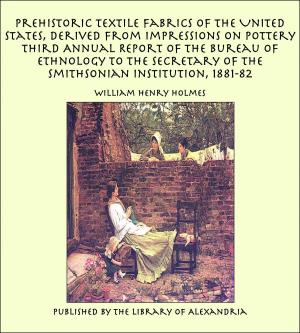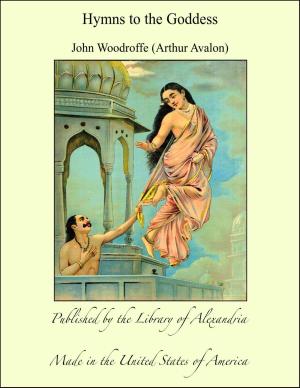| Author: | Sister Nivedita | ISBN: | 9781465579188 |
| Publisher: | Library of Alexandria | Publication: | March 8, 2015 |
| Imprint: | Language: | English |
| Author: | Sister Nivedita |
| ISBN: | 9781465579188 |
| Publisher: | Library of Alexandria |
| Publication: | March 8, 2015 |
| Imprint: | |
| Language: | English |
INDIANS, like all other peoples of the world, are naturally susceptible to flattery. But unfortunately they have been deprived of their share of it, even in wholesome measure, both by the Fates presiding at the making of their history as well as by the guests partaking of their salt. We have been declared inefficient in practical matters by our governors, foreign missionaries have created a vast literature proclaiming our moral obliquity, while casual visitors have expressed their opinion that we are particularly uninteresting to the intellectual mind of the West. Other peoples' estimate of our work is a great part of our world, and the most important other peoples in the present age being the Europeans, it has become tragic in its effect for us to be unable to evoke their appreciation. There was a time when India could touch the most sensitive part of Europe's mind by storming her imagination with a gorgeous vision of wealth. But cruel time has done its work and the golden illusion has vanished, leaving the ragged poverty of India open to public inspection, charitable or otherwise. Therefore epithets of a disparaging nature from the West find an easy target in India, bespattering her skin and piercing her vital parts. Epithets once given circulation die hard, for they have their breeding-places in our mental laziness and in our natural readiness to believe that whatever is different from ourselves must be offensive. Men can live through and die happy in spite of disparagement, if it comes from critics with whom they have no dealings. But unfortunately our critics not only have the power to give us a bad name, but also to hang us. They play the part of Providence over three hundred millions of aliens whose language they hardly know, and with whom their acquaintance is of the surface. Therefore the vast accumulation of calumny against India, continually growing and spreading over the earth, secretly and surely obstructs the element of heart from finding an entrance into our government.
INDIANS, like all other peoples of the world, are naturally susceptible to flattery. But unfortunately they have been deprived of their share of it, even in wholesome measure, both by the Fates presiding at the making of their history as well as by the guests partaking of their salt. We have been declared inefficient in practical matters by our governors, foreign missionaries have created a vast literature proclaiming our moral obliquity, while casual visitors have expressed their opinion that we are particularly uninteresting to the intellectual mind of the West. Other peoples' estimate of our work is a great part of our world, and the most important other peoples in the present age being the Europeans, it has become tragic in its effect for us to be unable to evoke their appreciation. There was a time when India could touch the most sensitive part of Europe's mind by storming her imagination with a gorgeous vision of wealth. But cruel time has done its work and the golden illusion has vanished, leaving the ragged poverty of India open to public inspection, charitable or otherwise. Therefore epithets of a disparaging nature from the West find an easy target in India, bespattering her skin and piercing her vital parts. Epithets once given circulation die hard, for they have their breeding-places in our mental laziness and in our natural readiness to believe that whatever is different from ourselves must be offensive. Men can live through and die happy in spite of disparagement, if it comes from critics with whom they have no dealings. But unfortunately our critics not only have the power to give us a bad name, but also to hang us. They play the part of Providence over three hundred millions of aliens whose language they hardly know, and with whom their acquaintance is of the surface. Therefore the vast accumulation of calumny against India, continually growing and spreading over the earth, secretly and surely obstructs the element of heart from finding an entrance into our government.















